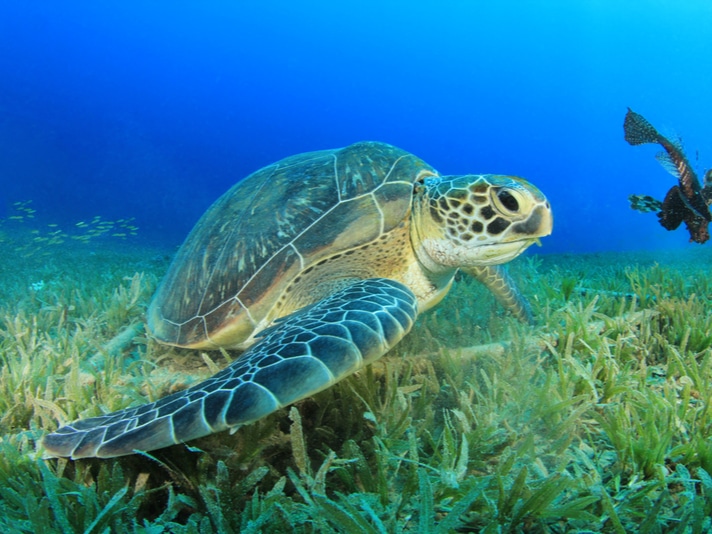The study found that contaminants such as cobalt, lead, barium, and cadmium are found in hatchling livers and have significant effects on sex ratio and sex ratio deviation.
Heavy metals ingested by female green sea turtles (Chelonia mydas) as they forage algae and sea grass may be skewing the sex ratio of their offspring, according to a study published in Frontiers in Marine Science.
The study, “Exploring contaminants as a disruptor of temperature-dependent sex determination in sea turtle hatchlings,” takes a look at other data from other reptile species such as alligators, freshwater turtles and caimans, and how contaminants can change the sex ratio of these temperature-dependent sex determination species.
The researchers, with the Australian Rivers Institute, School of Environment and Science, Griffith University, Gold Coast, QLD, Australia, The University of Queensland, University of Sunshine Coast, and World Wildlife Fund for Nature-Australia, believe that contaminants within sea turtle foraging areas could be maternally offloaded to the eggs, resulting in exposure of the contaminants in the egg and could influence sex determination in green sea turtle hatchlings.
Warming Planet Causes 99 Percent of Raine Island Sea Turtle Hatchlings To Be Female, Study Says
Herp Queries With Bill Love: Temperature-dependent Sex Determination
It is known that certain populations of green turtle hatchlings on Raine Island off the coast of Australia have experienced up to 99 percent female hatchlings for the last 20 years. Male hatchlings are outnumbered by females at a ratio of 116 to 1.
The study found that contaminants such as cobalt, lead, barium, and cadmium are found in hatchling livers and have significant effects on sex ratio and sex ratio deviation. The researchers looked at 16 clutches and found that “11 had more females than predicted (8 – 90% more females), three had more males (9 – 33% more males), and two matched the predicted sex ratio,” the study showed. Some of these contaminants have shown to skew sex ratios in other animals, such as zebrafish, pond sliders, snapping turtles, and pejeery fish. Cadmium is a known endocrine disrupting compound and is known to alter the transcription of two genes in certain freshwater turtles.
The researchers note that the study cannot pinpoint a specific contaminant that feminizes sea turtle hatchlings, but it demonstrates that the chemical mixtures can possibly affect sex ratio and sex ratio deviation trending toward feminization.
The complete study, “Exploring contaminants as a disruptor of temperature-dependent sex determination in sea turtle hatchlings,” can be read on the Frontiers in Marine Science website.



